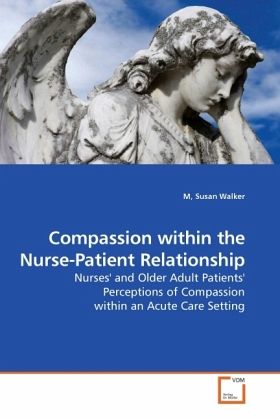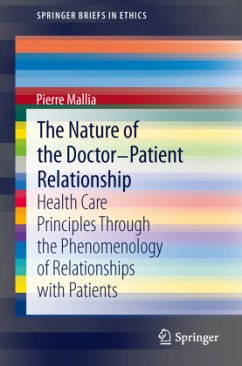
Compassion within the Nurse-Patient Relationship
Nurses' and Older Adult Patients' Perceptions of Compassion within an Acute Care Setting
Versandkostenfrei!
Versandfertig in 6-10 Tagen
52,99 €
inkl. MwSt.

PAYBACK Punkte
26 °P sammeln!
Compassion within the Nurse Patient Relationship: The Judeo-Christian heritage of the Good Samaritan or the legacy of the compassionate stranger has been cited as a significant factor in the development of nursing and medicine in the U. S. and other countries. Increasingly, however, patients, families, and healthcare professionals describe experiences that demonstrate a lack of compassion. Although frequently found in the literature, the researcher found no clear conceptualization of compassion. Using Schwart- Barcott and Kim's (2000) Hybrid Model of Concept Development, an analysis of the con...
Compassion within the Nurse Patient Relationship: The Judeo-Christian heritage of the Good Samaritan or the legacy of the compassionate stranger has been cited as a significant factor in the development of nursing and medicine in the U. S. and other countries. Increasingly, however, patients, families, and healthcare professionals describe experiences that demonstrate a lack of compassion. Although frequently found in the literature, the researcher found no clear conceptualization of compassion. Using Schwart- Barcott and Kim's (2000) Hybrid Model of Concept Development, an analysis of the concept of compassion from a review of theological, psychological, medical, and nursing literature was combined with interviews with nurses and older adult patients to more clearly articulate the concept from theoretical and empirical perspectives. In addition to identifying nursing behaviors that more clearly explicated the meaning of compassion within nurse- patient relationships, findings indicated that both nurses and patients consider compassion an essential element in nursing care that affirms, protects, and respects patients.












